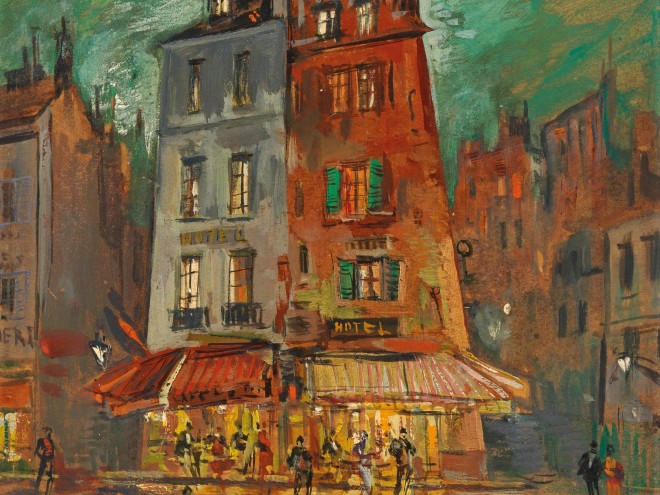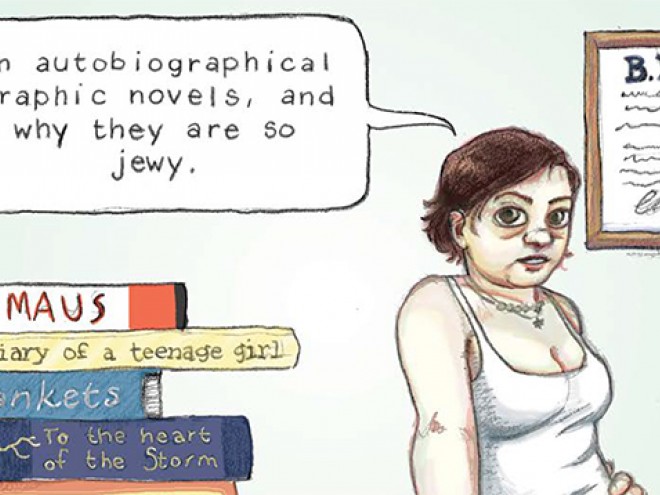
with Michelle Zaurov
Idra Novey is a poet, translator, and newly-minted fiction writer. Her first novel, Ways to Disappear, addresses the power and powerlessness of parents, children, writers, and their translators, brought to light when an internationally acclaimed Jewish Brazilian writer vanishes into the branches of an almond tree. Jewish Book Council sat down with the author to find out more.
Michelle Zaurov: I understand that Ways to Disappear is your first novel. Before writing fiction, you were primarily a poet?
Idra Novey: I’ve always written a mix of genres. I went to graduate school for poetry because it wasn’t possible to apply in more than one genre, or in both writing and translation. To be both a writer and a translator is more common in other countries than in the United States, but I encourage all my writing students to try translation. Working in multiple languages can push a writer in more surprising directions. That was certainly true for me writing in one language while translating from another.
MZ: And what language do you speak at home?
IM: Only Spanish. My husband grew up in a large Sephardic family in Chile and we lived in Valparaiso, Chile for several years together before moving to New York. We speak only Spanish with our children, so while I was translating for Clarice Lispector, I was working in Portuguese, living in Spanish, and writing a novel in English.
MZ: There was a part of the novel that really stuck out to me in the beginning where Raquel first expressed insecurity concerning the relationship with her mother, Beatriz: “She had no patience for the illusion that you could know someone because you knew her novels. What about knowing what a writer has never written down — wasn’t that the real knowledge of who she was?” What are you trying to relay about the relationship between a person’s identity and their own written words?
IM: One of the things I most wanted to explore in the novel is what happens, over time, to the partial versions we know of each other. What any of us says on social media, or tells at family events, or at work, are never more than slivers. In the novel, I wanted to explore how a mother and her grown children come to see more than slivers of each other, and what sort of emergency would bring them to a fuller view of each other’s lives. The same happens in the novel with Emma, the translator, who confuses her knowledge of her author’s work with knowledge of her author’s life.
MZ: In the novel, Emma escapes from her dull life in Pittsburgh through her translations of Beatriz’s writing. Did you feel that way with authors you’ve translated?
IM: I have found translation to be an exhilarating escape and form of adventure, but I also have experienced the opposite, and found translating drew me deeper into where I was in my own life. That especially happened with Clarice Lispector, who died long before I translated her novel, so I only knew her through her work but I found a book of letters that she exchanged with another Brazilian writer, Fernando Sabino, while she was living in Washington, D.C. The letters are about raising her young sons and trying to write; I read them while I was raising my sons and trying to write. The parallels between her letters and my life led me both deeper into her work and into my own.
MZ: Identity seems to play a big role in the novel. I saw that coming up a lot with Miles telling Emma, “This isn’t who you are, this isn’t your life.” It seems that every character has an element of you.
IM: I think that is often the case with a writer and her characters. If you haven’t experienced the emotions you’re describing, you won’t be able to convey them with authority. You don’t have to have experienced that emotion in the same situation as the character experiences it, but you do need to have a deep understanding of the feeling you’re describing. I identified with Beatriz’s younger son, Marcus, having grown up the younger sibling. As a younger sibling, you don’t take the lead and it shapes your personality, and if there’s an absent parent, it’s usually the older sibling who assumes more responsibility, as Raquel does in the novel. Marcus, as the younger sibling, is allowed to continue being a child. He continues to be the younger less responsible sibling into his thirties, when his mother disappears.
MZ: Why did you decide to make the Yagoda family Jewish?
IM: The writer who was the inspiration for the author in the novel was Clarice Lispector, who was Jewish. I’m Jewish as well and have come to know a number of really fascinating Brazilian and Chilean Jewish families, whose stories and personalities informed the book. Like Lispector, my invented author Beatriz Yagoda is an immigrant to Brazil who arrived as a child. Lispector came as a two-month-old baby. The Brazilian media always made a point of identifying her as from the Ukraine, but in many instances I think that was a euphemism for identifying her as Jewish, as “other”.
MZ: Speaking of cultural divides, I noticed that a part of Raquel’s hostility towards Emma was because she was American. When you lived in Chile and Brazil, did you witness that kind of treatment to foreigners?
IM: Oh, absolutely. Everywhere I’ve lived or traveled in Latin America, there’s been a palpable hostility from all the American military interventions and the devastation they have created, and also hostility resulting from the overwhelming presence of American companies and products.
That hostility was something I wanted to explore in the novel, too, even if it’s often presented in the book in a comical way.
MZ: Despite the gravity of the situation, you managed to deliver a lot of the story lightheartedly. Humor was really well woven into the violence and magnitude of certain conflicts.
IM: Thank you! I really enjoyed working on the humorous sections of the book, and humor is subversive. When you’re open to humor, you can actually go to a darker place than you could if you didn’t incorporate it, because you can get away with more when you use humor. You can throw out things you probably couldn’t throw out if you didn’t embed it in a joke.
Continue reading »
Michelle Zaurov is a student at Binghamton University in New York, where she studies English and literature. She has worked as a journalist writing for the Home Reporter, a local Brooklyn publication.
Related Content:
Michelle Zaurov is Jewish Book Council’s program associate. She graduated from Binghamton University in New York, where she studied English and literature. She has worked as a journalist writing for the Home Reporter, a local Brooklyn publication. She enjoys reading realistic fiction and fantasy novels, especially with a strong female lead.



